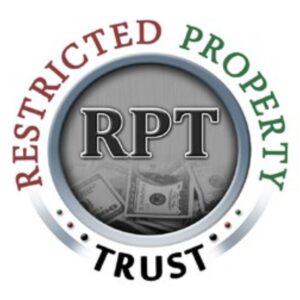Safeguarding Your Legacy: Effective Uses of Restricted Property Trusts
Safeguarding Your Legacy: Effective Uses of Restricted Property Trusts
Blog Article

In the field of wealth management, protecting assets from potential claims and making sure they are secure for the future is a primary concern for numerous high-net-worth persons. One innovative tool gaining traction in asset protection strategies includes the Restricted Property Trust. Unlike traditional trusts, RPTs provide a unique combination of flexibility and security that makes them a desirable choice for protecting wealth.
What is a Restricted Property Trust?
The Restricted Property Trust is a specially designed trust to guard assets from creditors while offering a system for distributing and managing wealth. Unlike standard trusts, RPTs require the transfer of assets or property in trust which protects them against legal claims as well as possible liabilities. This means that, in the event of a lawsuit, or other financial threat, the assets within the RPT are usually safe from being seized or liquidated.
How Do Restricted Property Trusts Work?
The function that an RPT is fairly simple. The property owner transfers assets into the trust, which then operates under a set predefined rules and restrictions. These rules usually include restrictions about how the trust's assets should be managed, used, or distributed. Because the trust is managed by a trustee, the assets are effectively kept separate from the individual's assets which provides a buffer against claims from creditors and legal actions.
Advantages of Restricted Property Trusts
1. Improved Asset Protection: The most important benefit of an RPT is its ability to safeguard assets from creditors as well as legal disputes. By putting assets into a trust with specific limitations, they are protected from claims made against the trustee.
2. Flexibility in Management: RPTs allow for detailed control of how assets are managed and distributed. This means that trusts can be arranged to fulfill specific requirements or objectives, like ensuring future generations are provided for or funding charitable causes.
3. Tax advantages: In some cases, assets placed in an RPT may be eligible for tax-favored treatment. The tax treatment will depend on the state of origin and the particulars of trusts, there could be tax advantages in the form of deferral or reduction.
4. Estate planning: RPTs could play a significant role in estate planning by ensuring that assets are passed on in accordance with the wishes of the grantor while minimizing estate taxes and avoiding probate.
Potential Drawbacks
Although RPTs provide significant advantages, they are not without possible drawbacks. The process of setting up and managing an RPT can be complex and could result in higher expenses compared to other methods of asset protection. Furthermore, the restrictions imposed on the trust assets can limit the freedom in the way they are employed.
Conclusion
Restricted Property Trusts provide an innovative and efficient method to protect wealth from dangers. By leveraging the unique structure of RPTs, individuals can enjoy a superior amount of asset protection and control the way their wealth is governed and distributed. If you're looking to safeguard their assets and improve their estate planning, examining the benefits of Restricted Property Trust is a prudent step towards an effective wealth management.
Report this page